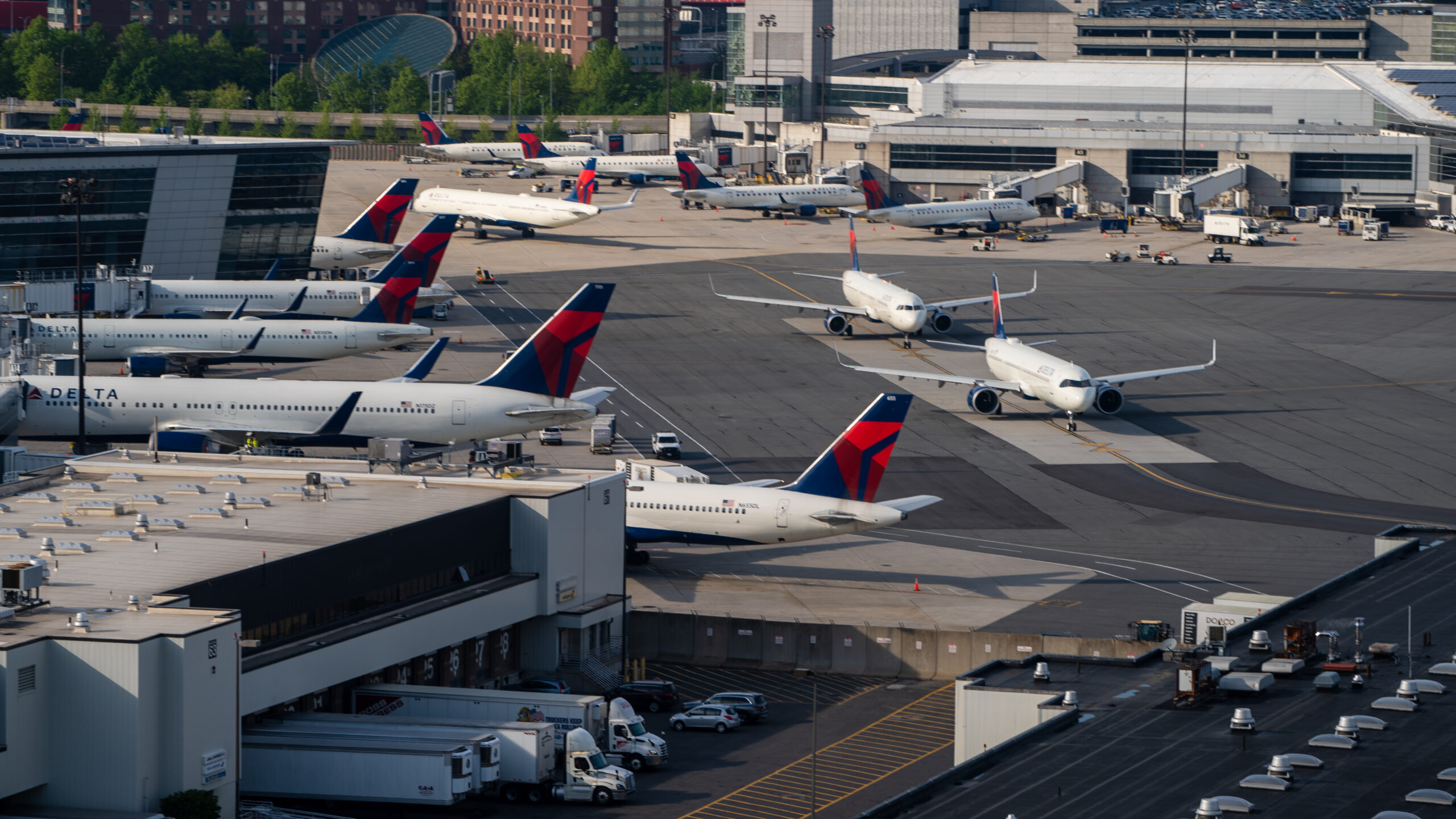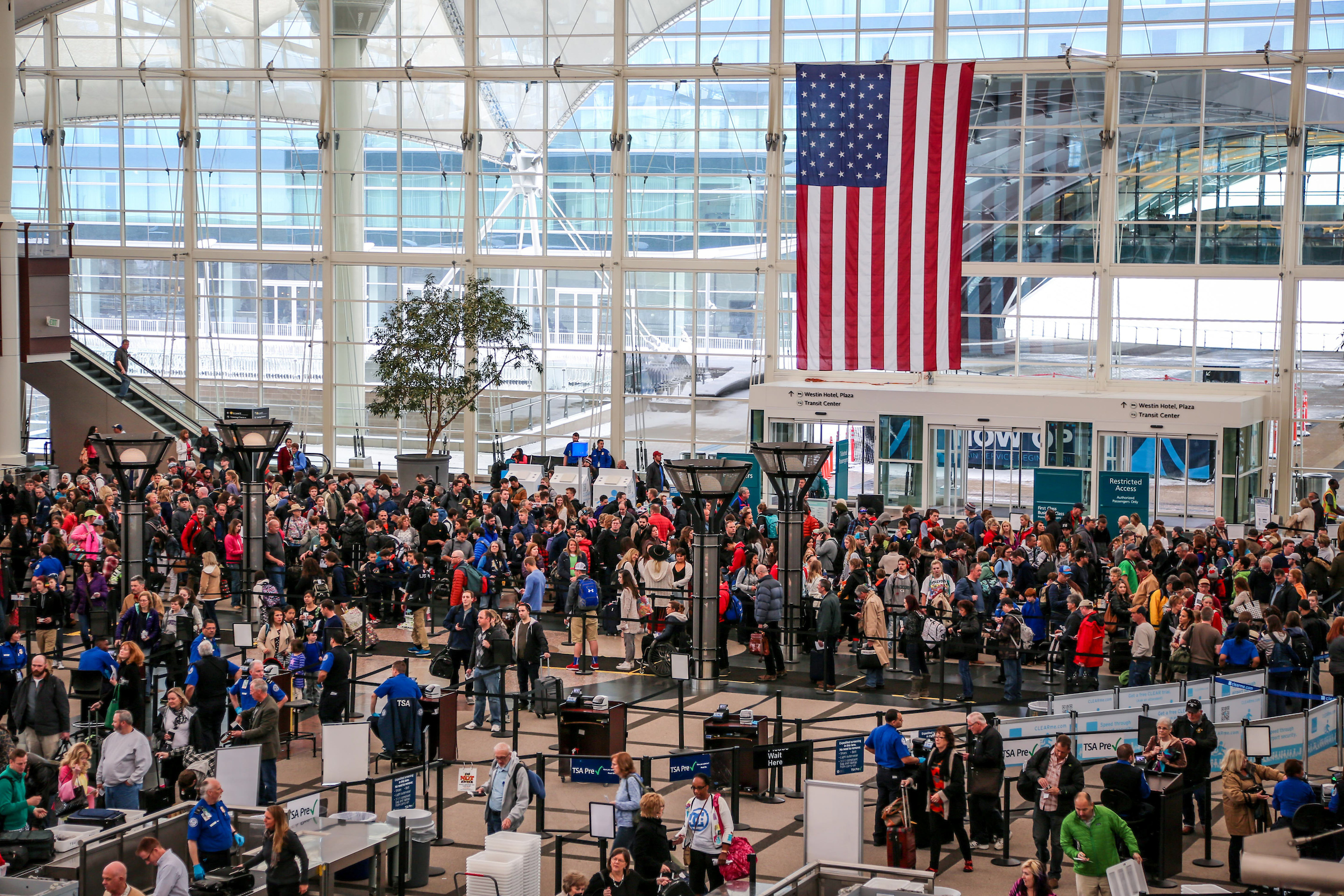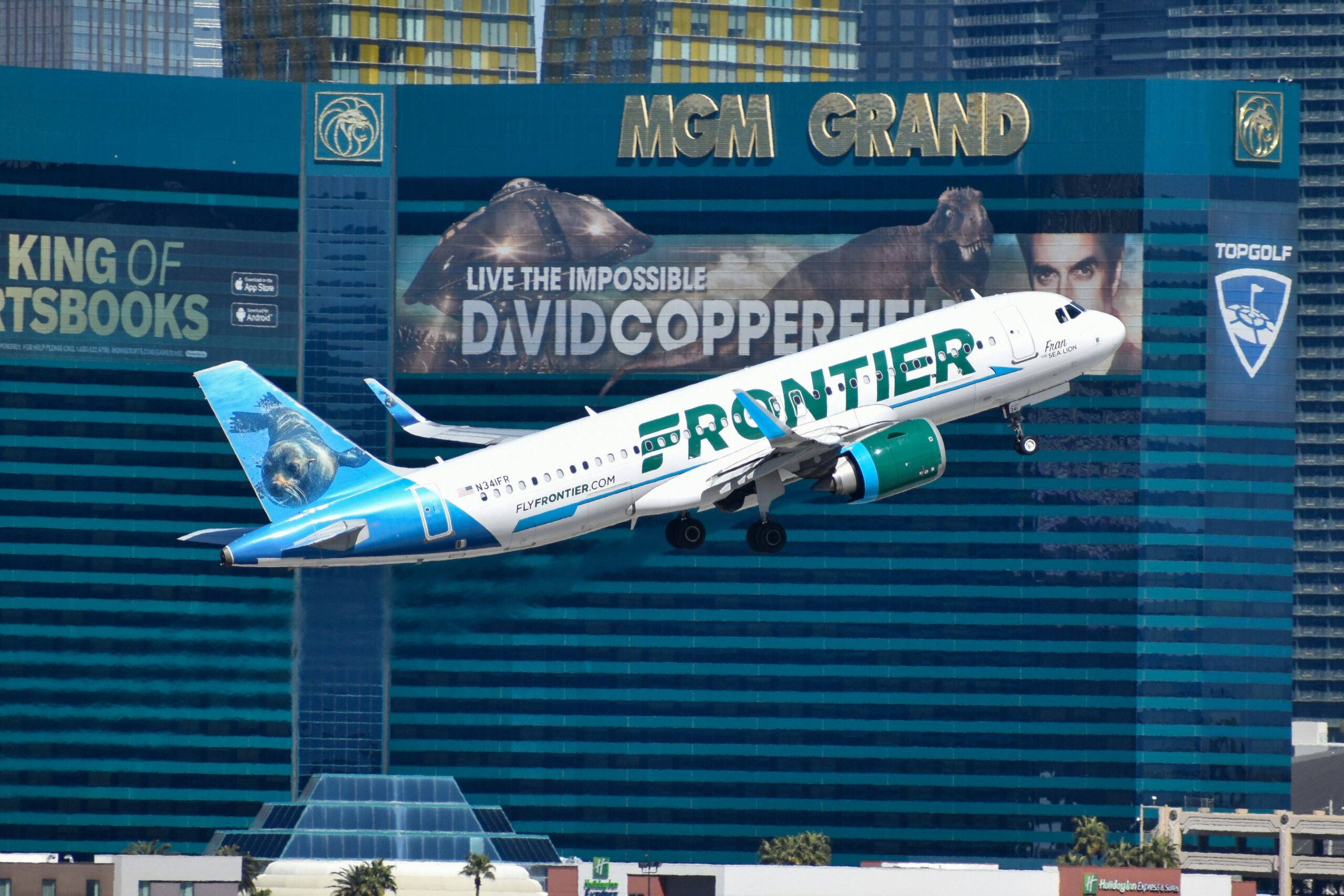Air Canada Launches Luxury Bus Transfer Service at Toronto Pearson
Luxury coaches will connect Toronto to regional airports in Hamilton and Waterloo
by Lauren Smith
February 28, 2024
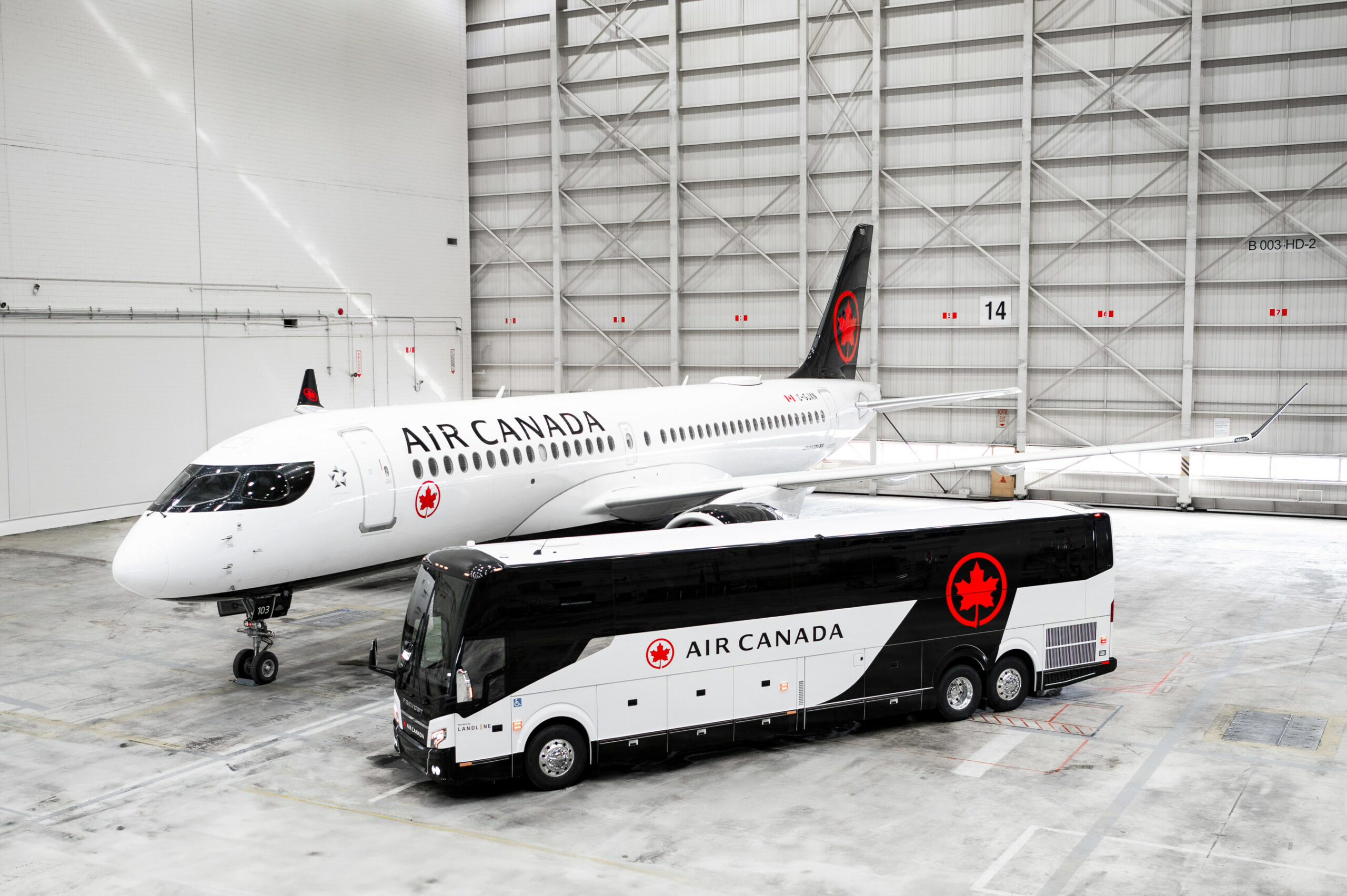
Photo: Courtesy of CNW Group / Air Canada
From May, some connecting Air Canada “flights” won’t take to the skies but rather to Ontario’s highways, as the carrier partners with bus operator Landline to boost its regional service with multi-modal journeys.
Landline’s luxury coach service will link Toronto’s Pearson International Airport (YYZ) with two smaller airports in the region: John C. Munro Hamilton International Airport (YHM) and Region of Waterloo International Airport (YKF), both new destinations for the carrier.
How does it work?
Passengers on these connecting coach journeys will travel under a single Air Canada itinerary, with many benefits of air-only connections, including baggage checked to their final destination and a single check-in.
The buses will operate with Air Canada flight numbers and the carrier’s maple leaf livery. Each has 36 leather airline-style seats, comparable to premium economy cabins, with a 35-inch pitch, tray tables, power outlets, and overhead storage for carry-on luggage.
There’s no complimentary food and drinks, but passengers can pass the flights—both approximately an hour and ten minutes—with complimentary Wi-Fi.

Photo: Courtesy of CNW Group / Air Canada
They’ll also earn points through Air Canada’s Aeroplan or any other Star Alliance loyalty program for the bus leg of their journey, just as they would on an Air Canada flight.
Landline will operate six roundtrip “flights” between each airport and Toronto daily. The buses will arrive and depart from the terminal curb, outside security, or landside in aviation parlance. That means travelers will need to pass through security once they arrive at Toronto’s Pearson Airport.
Bus-operated connecting flights will enable Air Canada to expand its regional service when airlines are shedding short-haul flights to cut costs, manage post-pandemic shortages of staff and aircraft, and respond to environmental scrutiny. Air Canada itself has culled ten smaller Canadian cities from its network since 2019, including Kingston (YGK) and Sarnia (YZR) in Ontario and Val d’Or (YVO) in Quebec.
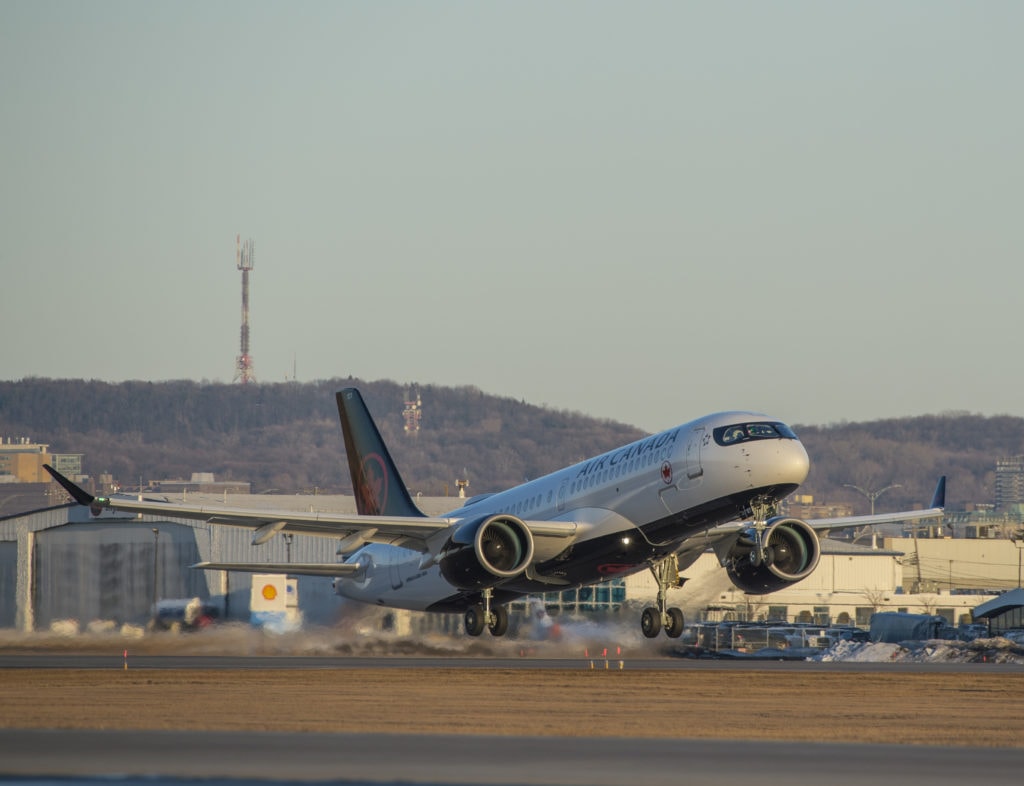
Air Canada’s Airbus A220-300. Photo: Courtesy of Air Canada
While data suggests that thousands of people drive from Hamilton and Waterloo to catch flights at Pearson every day, the demand isn’t sufficient for a connecting flight. Coach connections offer a low-cost way for airlines to capture this market.
“We are looking to extend our regional network, but in some local markets demand at this point is insufficient to support regular air service,” Air Canada spokesperson Peter Fitzpatrick said. “As well, in markets such as this, the relatively short distance to our global hub in Toronto makes flying impractical.”
“Air Canada is focused on improving regional services,” said Alexandre Lefèvre, vice president of network planning at the airline. “Through this innovative partnership with The Landline Company, we are connecting communities and extending our network by offering customers a convenient, stress-free multimodal option.”
The venture will be Landline’s first outside of the United States. The company operates regional feeder bus services for United Airlines, American Airlines, and Sun Country Airlines through several hubs, including Philadelphia (PHL) and Denver (DEN).
“Canada is a perfect market for Landline,” Nick Johnson, the head of revenue at Landline, told The Points Guy. “Big hub airports and a lot of small, mid-sized cities within our strike zone of one to three hours from the hub.”
Other Air+Bus Initiatives in America
Canadians could also be more likely than Americans to leave their cars behind and hop on a connecting airline bus. While some of Landline’s U.S. ventures have been a roaring success—the airline just added a 15th daily bus between Northern Colorado Regional Airport (FNL) in Fort Collins and Denver (DEN) for United—coach journeys have been a tougher sell in other locales. The company recently scrapped the twice-daily service it offered between Denver and the ski town of Breckenridge for United.
Another stumbling block is security clearance in airports. As in Canada, in the U.S., most bus-to-plane connections require passengers to pass through security when they arrive at the larger airport.
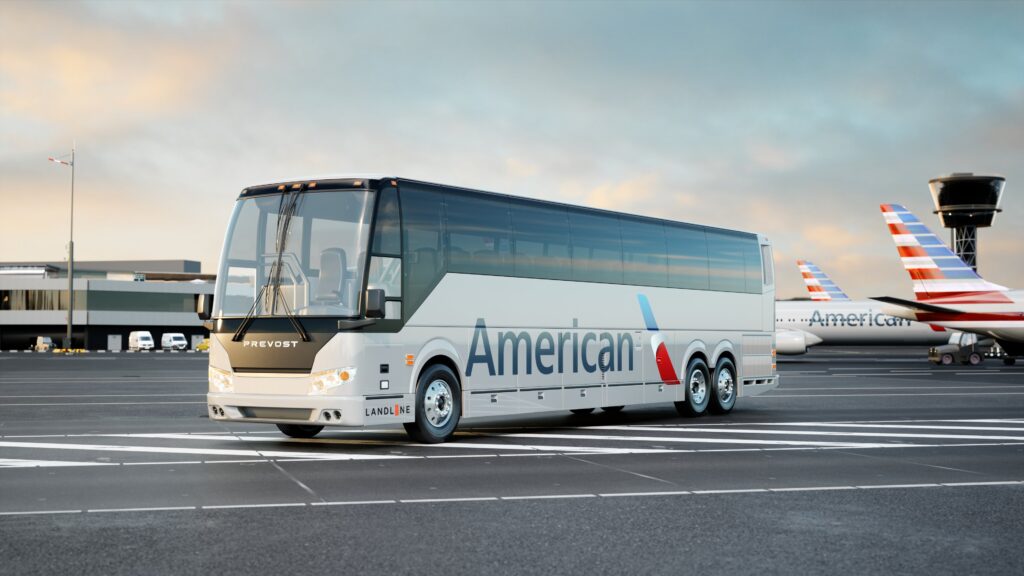
Photo: Courtesy of Landline / American Airlines
Landline’s service with American Airlines, connecting Philadelphia International Airport (PHL) to Atlantic City (ACY) and Lehigh Valley (ABE), is the exception, with TSA approval for airside-to-airside connections. Will Landline and Air Canada seek similar authorization from the Canadian Air Transport Security Authority (CATSA) for their connections in Ontario? Not yet, suggested David Sunde, co-founder and CEO of Landline.
The priority is demonstrating that the business “works in Canada” and “that we can drive a lot of volume,” he said.

